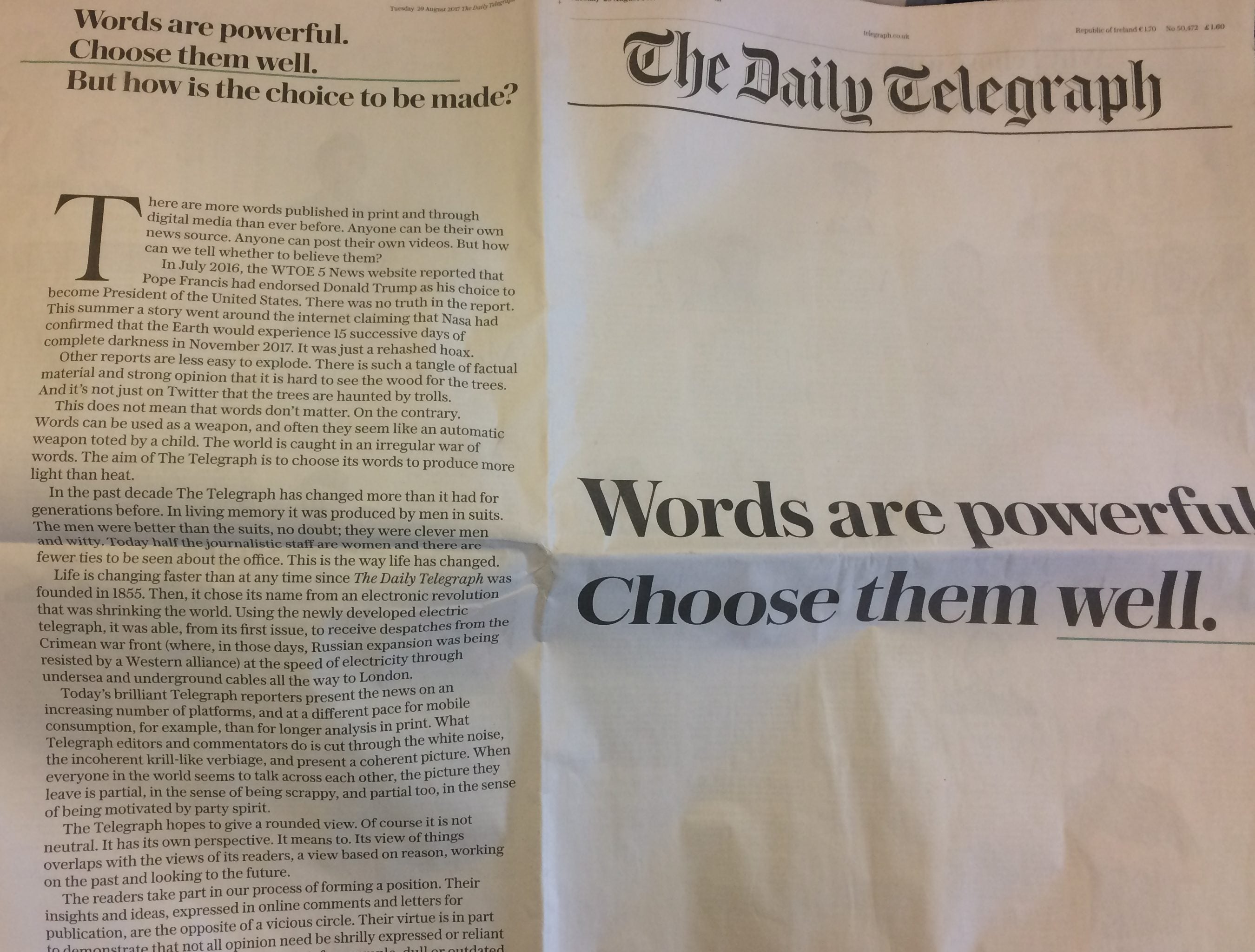
The Daily Telegraph has used a cover wrap to run an editorial highlighting the spread of fake news as its editor warns that “the world is caught in an irregular war of words”.
The paper’s wrap states: “Words are powerful. Choose them well,” on the front page, with a back-page piece by editor Chris Evans.
“There are more words published in print and through digital media than ever before,” says Evans. “Anyone can be their own news source. Anyone can post their own videos. But how can we tell whether to believe them?”
Evans references the fake claim made during the US presidential election that the Pope backed Donald Trump for the White House top job – saying there was “no truth in the report” – and a “rehashed hoax” claiming the Earth would have 15 successive days of darkness later this year.
“Other reports are less easy to explode,” warns Evans.
“There is such a tangle of factual material and strong opinion that it is hard to see the wood for the trees. And it’s not just on Twitter that the trees are haunted by trolls.
“This does not mean that words don’t matter. On the contrary. Words can be used as a weapon, and often they seem like an automatic weapon toted by a child.
“The world is caught in an irregular war of words. The aim of the Telegraph is to choose its words to produce more light than heat.”
He adds: “What Telegraph editors and commentators do is cut through the white noise, the incoherent krill-like verbiage, and present a coherent picture…
“Words chosen well bring people together and leave them free to continue political discussion. It is a power we intend to use responsibly.”
On bias, Evans says: “The Telegraph hopes to give a rounded view. Of course it is not neutral. It has its own persepective. It means to. Its view of things overlaps with the views of its readers, a view based on reason, working on the past and looking to the future.”
Evans also says the Telegraph had changed more in the past decade “than it had for generations before”. Where before it was produced by “men in suits”, “today half the journalistic staff are women”, he says.
Email pged@pressgazette.co.uk to point out mistakes, provide story tips or send in a letter for publication on our "Letters Page" blog

